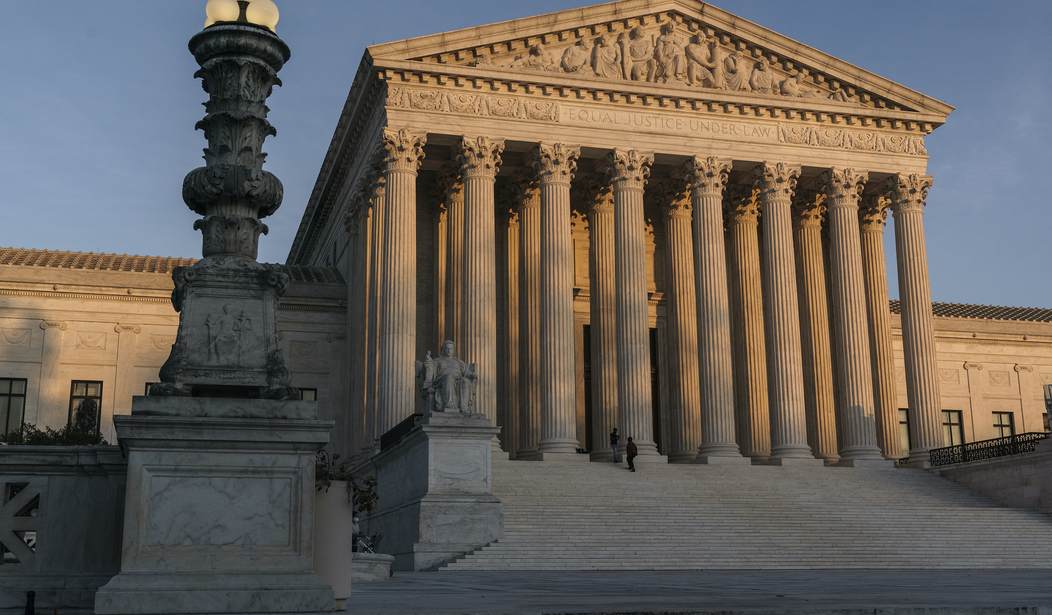The U.S. Supreme Court stepped in on Thursday to temporarily block part of New York's eviction moratorium, Adam Liptak reported for The New York Times.
The decision was unsigned but broke along ideological lines, in a 6-3 decision. Justice Stephen Breyer wrote the dissent and was joined by fellow liberal Justices Elena Kagan and Sonia Sotomayor.
Thursday's decision, as emphasized by Liptak's report, applies only to a specific portion of the state law, which was enacted last December:
The court’s order was unsigned and stressed that it applied only to a part of a state law that bars the eviction of tenants who file a form saying they have suffered economic setbacks as result of the pandemic. “This scheme violates the court’s longstanding teaching that ordinarily ‘no man can be a judge in his own case’ consistent with the Due Process Clause,” the majority wrote.
The order left other parts of the law intact, including a provision that instructed housing judges not to evict tenants who have been found to have suffered financial hardship.
Further court proceedings are likely to only continue from here. As Liptak himself acknowledged:
Other challenges to eviction moratoriums, including one recently imposed by the Centers for Disease Control and Prevention, may reach the court soon. That federal moratorium is on precarious legal ground in light of a ruling from the justices in June.
Last Wednesday, in an "analysis" piece for CNN, Stephen Collinson highlighted the concerns of a "humanitarian crisis" that would arise if President Joe Biden didn't not take unconstitutional action to extend the CDC's eviction moratorium. Collinson also claimed "crushing humanitarian and political pressure left him no choice but to take a chance on an emergency move."
Recommended
CNN had to issue an update for an August 3 article to do with a Las Vegas woman, Dasha Kelly, who is benefitting from GoFundMe donations when it comes to facing potential eviction. She was described as the mother of three children when in actuality she is the nanny. Kelly was referenced in Collinson's article as well.
If one feels the need to look past the constitutionality of Biden's move to address "humanitarian" concerns, those exist for landlords, too. As Liptak included in his reporting:
The case was brought by several small landlords who said they had endured severe hardship and even homelessness because of the part of the law allowing eviction proceedings to be suspended by the filing of a form. The law does not relieve tenants of their obligation to pay rent or block lawsuits for unpaid rents.
Katie and Leah have covered the perspective of landlords who are fighting back in the courts.
President Biden himself has acknowledged that he is buying time to "keep this going." Townhall spoke with Curt Levey, a constitutional law attorney and the president of the Committee for Justice, who has weighed in on the overall constitutional question.
"In fact, Biden admitted that he was acting to buy 'some additional time' before the courts could strike down his obviously unlawful directive. Unfortunately for Biden, the Constitution makes no exceptions for buying time, dangerous viruses, or sympathetic situations like renters facing eviction. Never mind Biden's lack of sympathy for all the small landlords whose struggles to avoid bankruptcy are imperiled by Biden’s extension," he shared.
Republican members of Congress have pointed out that this constitutes an impeachable offense.
"If the still Democrat-controlled House were interested in being legally or logically consistent, it would certainly consider whether to impeach Biden for his defiance of the Supreme Court." Levey also shared. "But of course, I'm not holding my breath for that to happen."

























Join the conversation as a VIP Member